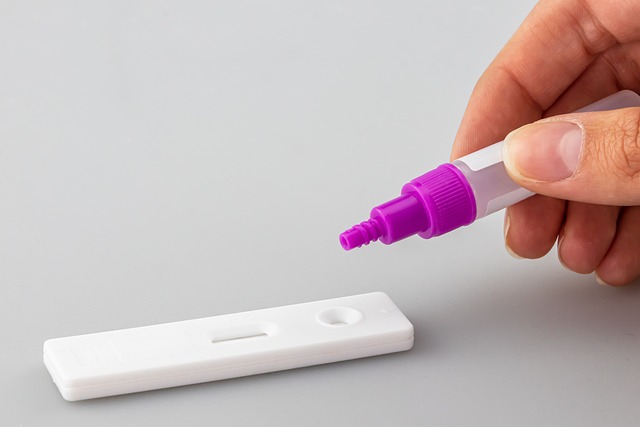Hyaluronic Injections for Knee Pain Treatment in Canada
Individuals in Canada experiencing knee pain may consider hyaluronic injections as a potential treatment option. This procedure involves the injection of hyaluronic acid into the knee joint to improve lubrication and reduce pain. It is important to understand the effectiveness, the mechanism of action, and the specific considerations for those seeking this treatment in Canada.

Knee pain represents one of the most common musculoskeletal complaints among Canadian adults, particularly those over 50. When conservative treatments like physiotherapy and oral medications prove insufficient, many patients and healthcare providers turn to hyaluronic acid injections as an intermediate treatment option before considering surgical intervention.
Understanding Hyaluronic Injections for Knee Pain Management
Hyaluronic acid injections, also known as viscosupplementation, involve introducing a gel-like substance directly into the knee joint space. This substance mimics the natural synovial fluid that lubricates healthy joints. The treatment aims to restore the cushioning and shock-absorbing properties that diminish as cartilage deteriorates, particularly in cases of osteoarthritis.
The injection process typically involves a series of treatments administered over several weeks. Healthcare providers use ultrasound guidance or anatomical landmarks to ensure precise placement of the hyaluronic acid into the joint space. Most patients receive between one to five injections, depending on the specific product used and individual treatment protocols.
The Role of Hyaluronic Acid in Joint Health and Mobility
Natural hyaluronic acid serves as a crucial component of healthy joint function. It acts as both a lubricant and shock absorber, allowing smooth movement between bone surfaces while protecting cartilage from excessive wear. In arthritic joints, the concentration and quality of natural hyaluronic acid decrease significantly, contributing to pain, stiffness, and reduced mobility.
Injected hyaluronic acid supplements the depleted natural supply, potentially improving joint mechanics and reducing inflammatory responses. Research suggests that these injections may also stimulate the production of natural hyaluronic acid and provide anti-inflammatory effects beyond simple mechanical lubrication. The molecular weight and cross-linking of different hyaluronic acid products can influence their effectiveness and duration of action.
Treatment Process and Considerations for Canadian Patients
Canadian patients considering hyaluronic acid injections should understand the treatment timeline and expectations. Initial consultation typically involves comprehensive assessment of knee pain history, physical examination, and review of imaging studies. Healthcare providers evaluate factors such as arthritis severity, previous treatments, and overall health status to determine candidacy.
The injection procedure itself usually takes 15-30 minutes and can be performed in outpatient clinics. Patients may experience temporary discomfort or swelling at the injection site, but serious complications remain rare. Most individuals can resume normal activities within 24-48 hours, though heavy exercise or prolonged standing may be temporarily restricted.
Response to treatment varies considerably among patients. Some experience pain relief within days, while others may require several weeks to notice improvement. The duration of benefit typically ranges from three to twelve months, with some patients requiring repeat injection series to maintain symptom control.
| Treatment Provider | Service Offered | Cost Estimation (CAD) |
|---|---|---|
| Private Orthopedic Clinics | Single injection series | $800-$1,500 |
| Rheumatology Centers | Multi-injection protocol | $1,200-$2,200 |
| Sports Medicine Clinics | Ultrasound-guided injections | $1,000-$1,800 |
| Hospital Outpatient Services | Standard viscosupplementation | $600-$1,200 |
Prices, rates, or cost estimates mentioned in this article are based on the latest available information but may change over time. Independent research is advised before making financial decisions.
Insurance coverage for hyaluronic acid injections varies across Canadian provinces and private insurance plans. While some provincial health plans provide coverage under specific circumstances, many patients pay out-of-pocket or rely on private insurance benefits. Coverage criteria often require documentation of failed conservative treatments and specific arthritis severity levels.
Patients should discuss potential side effects and contraindications with their healthcare providers. While generally well-tolerated, hyaluronic acid injections may not be suitable for individuals with active knee infections, severe joint deformity, or certain allergies. Alternative treatments, including corticosteroid injections, platelet-rich plasma therapy, or surgical options, may be more appropriate in some cases.
The effectiveness of hyaluronic acid injections continues to be studied, with research focusing on optimal patient selection, injection techniques, and product formulations. Canadian medical guidelines provide evidence-based recommendations for incorporating viscosupplementation into comprehensive knee pain management strategies.
This article is for informational purposes only and should not be considered medical advice. Please consult a qualified healthcare professional for personalized guidance and treatment.




